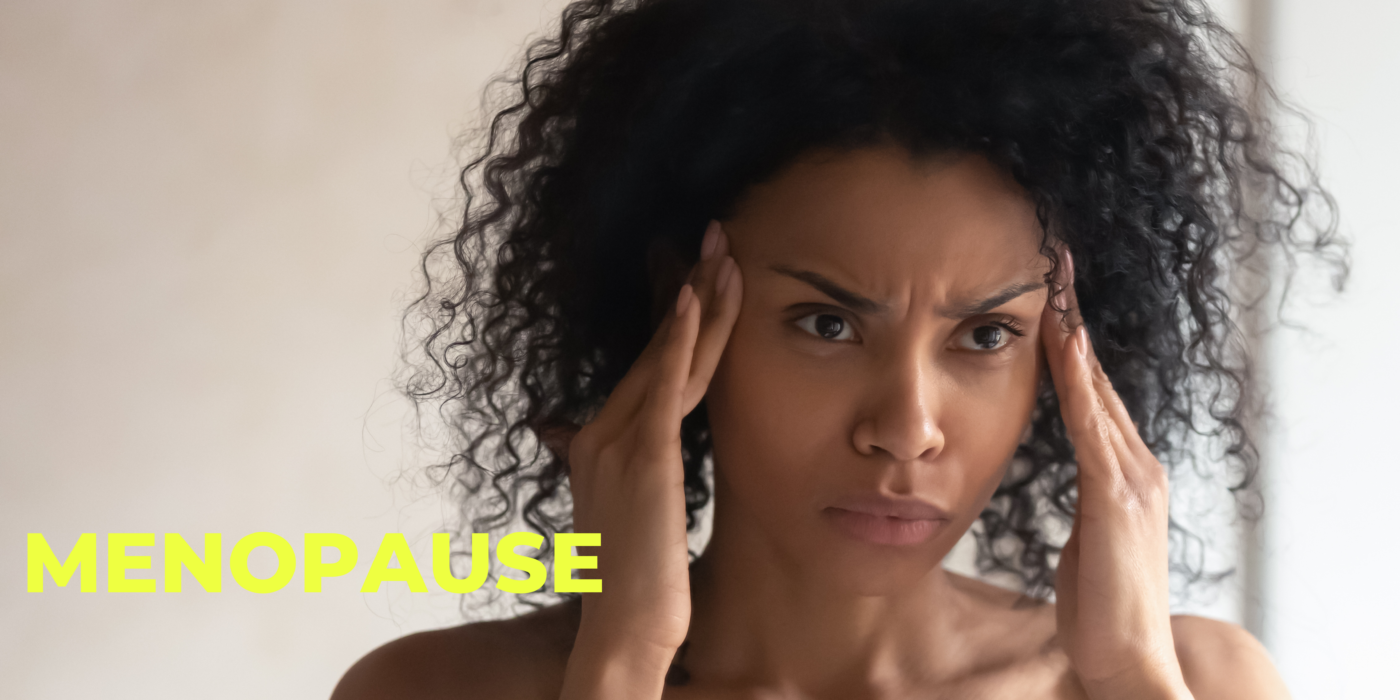What is menopause?
Menopause occurs after a year without a menstrual period. It tends to occur in our late 40’s to early 50’s marking the end of a lady’s fertile reproductive years – a natural part of the ageing process.
Menopause is divided into perimenopause, menopause, and postmenopause. However, when people experience menopause early, before the age of 45, this is considered premature menopause. People who have had their ovaries removed are said to have undergone surgical menopause.
NB – Conditions that could interfere with this natural ageing process include radiation, hormonal birth control, high prolactin, overactive thyroid, and surgical removal of the ovaries.
What is happening to our hormones during this period?
The reproductive cycle functions continuously from puberty up until menopause when it begins to slow down, preparing to stop. Ovaries make less estrogen whose reduction affects the menstrual cycle. The result? Irregular or no periods at all. Read on for symptoms you can expect to experience.
12 symptoms of menopause
- Insomnia
- Urinary urgency
- Hot and cold flushes
- Irritability, mood swings, and depression
- Dry eyes or mouth
- Changes in libido
- Vaginal dryness
- Memory lapses
- Night sweats
- Weight gain
- Hair loss or thinning
- Muscle and joint aches
7 effects of menopause on the skin
- Dry skin
- Acne
- Sensitivity
- Slow wound healing
- Wrinkles and shrunken skin
- Facial hair
- Sun-damaged skin
Here are 6 tips to manage the skin during menopause
- Change your diet
Foods to include in your diet are fruits, vegetables, flaxseed, soybeans, grains, lentils, beans, and chickpeas. These contain plant estrogen which supplements the low estrogen levels at this time. Cutting back on spicy food and caffeine also relieves some of the symptoms experienced at this time.
- Exercise
Exercise comes in many forms so the trick is to pick the one you enjoy most. If you struggle to go to the gym you have dance and swimming, for instance, as great alternatives. Don’t make excuses when it comes to your health.
- Consult an expert
Book a one-on-one consultation with our in-house skincare therapist, Joyce Waiharo, to get expert guidance on how to navigate your skincare at this time here. The session is redeemable for Kes. 1,000 worth of our products.
- Take supplements
The kinds of supplements you take should be determined by your doctor once you’ve gotten a full body check-up. This is typically dependent on what you’re lacking the most. Check out 6 ingredients we suggest looking for when buying skincare supplements here for starters.
- Build a skincare routine
Here’s expert advice on building a skincare routine if you’re looking to build one from scratch. Alternatively, check out our glow kit for normal, dry, or sensitive skin, acne skincare kit for acne-prone skin, and glow kit for oily and combination skin here. Always follow up with SPF 30+.
- Use products suitable for mature skin
As skin ages, it produces less collagen, becoming thinner, less elastic and can no longer hold moisture as effectively. It’s important to incorporate skincare ingredients and products that help target these concerns and slow down the process of ageing. For example, using ingredients that hydrate, boost collagen production, help regenerate cells.
Our mature skincare collection here at Uncover comprises our Beausta cica recipe cleansing foam, Neulii exfoliating toner pads or Neulii derma ecto-cica 11 toner, Neulii cica-pepta repair serum, Neulii derma ecto-cica 12 serum, Niacinamide 10 brightening ampoule, or our sheet masks, and the Neulii natural squalane desertica moisture cream or Neulii derma ecto-cica 23 emulsion.
NB – The products have been listed in the order in which they should be used depending on your skin type. See more on how products are layered here.
3 FAQs about menopause
- How can I prevent hot flashes? Manage stress and reduce your spices, alcohol, and caffeine intake.
- Does menopause increase the risk of heart disease? Yes, due to ageing and decreased estrogen levels.
- How can I enjoy menopause? Join a support group to understand yourself better and confide in peers undergoing the same thing.

